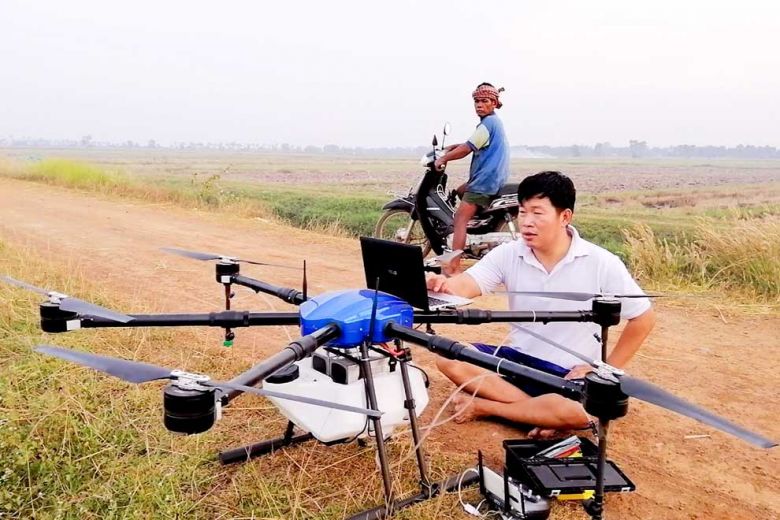crop dusting drone in Cambodia

With the difficulty of spraying pesticides on large tracts of land, 38-year-old Cambodian farmer Sopheak wants to build an unmanned crop dusting drone himself to help prevent farmers from being exposed to chemicals and make their jobs easier
The original intention of building the drone - reducing the direct exposure of agricultural names to chemicals
"I've seen people who are reluctant to take up the job of spraying pesticides out of fear that they might be poisoned," Sofik said. "With spray drones, farming has become easier, faster, and more efficient. It doesn't It will damage the crops and it will not damage the health of the farmers," he said. Sopheak is promoting his invention on Facebook.

Advantages of spray drones
1. Use less pesticides and save costs
Drones can apply liquids more economically than traditional methods. "By using drones, we can save 20 percent of our pesticides. One hectare is only 16 liters (4.2 gallons). It only takes seven minutes to spray one hectare."
2. Breakpoint flight for precise spraying
"Sometimes humans can be careless at work, and drones don't make the same mistakes. They work according to the map we draw and the altitude we set. When the drone runs out of liquid, it automatically marks the last one Point and fly back. After refilling, it will start over at the last stop," Sopheak said.

Agricultural Spraying Services
A ready-made spray drone costs between $5,000-$10,000, so most farmers can’t afford it, so Sopheak thought of drone spraying services, “Farmers don’t need to buy drones themselves. They His drone spraying services can be paid for less than traditional agricultural spraying.”
Sopheak and his team charge 40,000 to 100,000 riel (9 to 22 euros or 10 to 19 dollars) per hectare, depending on crop type and geographic location. In this way, according to the workload of 30 hectares a day, Sopheak's team can recover the cost of one drone in one month, farmers can complete crop spraying with less money, and Sopheak also makes money, which is a win-win business profit model
Sopheak and his team traveled to many provinces in Cambodia. They use drones on pepper and mango plantations, rice fields and many other different kinds of crops.
“Farmers are increasingly interested and curious about technologies related to agriculture. They want to get bigger harvests and compete with products from neighboring countries. Drones are like an agricultural revolution because they will bring huge benefits to farmers interest," Sopheak said.


